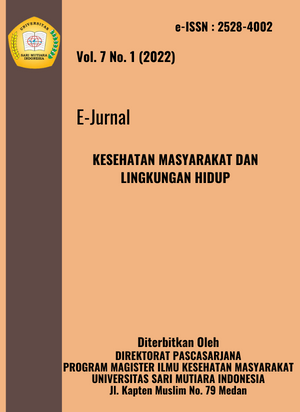PENGUKURAN BEBAN KERJA DENGAN MENGGUNAKAN METODE RATING SCALE MENTAL EFFORT
Main Article Content
Abstract
In Indonesia, education can’t be separated from the role of teachers. Teachers have many responsibilities even with less welfare. Based on these problems, this study aims to measure the mental workload, analyze the factors that most influence it, and analyze improvement plans for teachers at SMP XYZ. The researcher uses a subjective workload measurement method in the form of a Rating Scale Mental Effort which only one measurement dimension is in the form of mental effort so that it is practical to use. The results showed that the value of the mental workload of teachers at SMP XYZ with the RSME method was 88.33 or the effort made tended to approach a fairly large scale. The most influencing factors are the difficulty of adapting learning to online, students do not have supporting devices, a lot of online learning preparation, and students who are late in collecting both assignments and remedial. Therefore, the improvement design that can overcome this is to provide online training and work guidance, facilitate mobile phone and internet quota assistance to students in need, provide students with project-based assignments that aren’t incriminating and fun, and proactively contact students and play the role of parents to assist online learning.
Downloads
Article Details
References
Hill, R. (1998). What Sample Size is "Enough" in Internet Survey Research?. Interpersonal Computing And Technology: An Electronic Journal For The 21St Century, 6(3-4), 1-10.
Dewi, A. (2021). Pengantar Statistik Penelitian. Lecture, UPN "Veteran" Jakarta.
Asmuni. (2020). Problematika Pembelajaran Daring di Masa Pandemi Covid-19 dan Solusi Pemecahannya. Jurnal Paedagogy, 7(4), 281-288.
Wulandari, M. A., Arga, H. S. P., Kelana, J. B., Altaftazani, D. H., & Ruqoyyah, S. (2020). Analisis Pembelajaran “Daring” Pada Guru Sekolah Dasar di Era Covid-19. Jurnal Ilmiah P2M STKIP Siliwangi, 7(2), 164-168.
Anugrahana, A. (2020). Hambatan, Solusi dan Harapan: Pembelajaran Daring Selama Masa Pandemi Covid-19 Oleh Guru Sekolah Dasar. Scholaria: Jurnal Pendidikan dan Kebudayaan, 10(3), 282-289.
Didin, F., Mardiono, I., &Yanuarso, H. (2020). Analisis Beban Kerja Mental Mahasiswa saat Perkuliahan Online Synchronous dan Asynchronous Menggunakan Metode Rating Scale Mental Effort. OPSI, 13(1), 49. https://doi.org/10.31315/opsi.v13i1.3501
Pandiangan, S., Mahachandra, M., & Handayani, N. (2019). Analisis Beban Kerja Mental Divisi HR & GA PT. Pertamina Transkontinental Dengan Metode Rating Scale Mental Effort. SEMINAR NASIONAL TEKNIK INDUSTRI UNIVERSITAS GADJAH MADA 2019, 42-46.
Simanjuntak, R. A. (2010). Analisis Beban Kerja Mental denganMetoda NASA-Task Load Index. Jurnal Teknologi Technoscientia, 78-86.
Sari, Santika. (2021). Beban Kerja Mental [Power Point slides].
Premono, Furqon Adi (2021) ANALISIS PENGUKURAN BEBAN KERJA MENTAL TERHADAP KINERJA GURU SMP NEGERI DENGAN SISTEM PEMBELAJARAN ONLINE SEKOLAH SELAMA PANDEMI COVID-19. Undergraduate thesis, Institut Teknologi Sepuluh Nopember.
Wahyudin, Dadang (2020) PENGARUH TINGKAT KESEJAHTERAAN GURU DAN BEBAN KERJA GURU TERHADAP KINERJA GURU (Studi Kasus Pada SMA Pramita dan SMK Insan Kamil Tartila, Kabupaten Tangerang). Magister thesis, UIN SMH BANTEN.
Murti, Silvi Rian (2013) Analisis Pengaruh Beban Kerja Dan Kompensasi Terhadap Produktivitas Kerja Guru SMP Negeri (Studi Kasus di SMP Negeri 5 Sragen). Skripsi thesis, Universitas Muhammadiyah Surakarta.
Astuti, P., Indarti, S., & Machasin, M. (2017). Pengaruh Kepemimpinan, Iklim Kerja Dan Beban Kerja Terhadap Kinerja Guru Pada Smp Negeri 3 Dumai. Jurnal Online Mahasiswa Fakultas Ekonomi Universitas Riau, 4(1), 1090–1104

